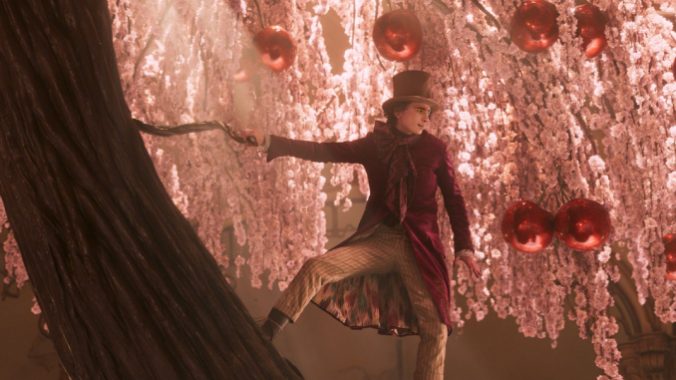Why Are Songs in Movie Musicals So Bad Now?

“Good mornin’! Good mornin’! We’ve talked the whole night through…” It’s a tune intrinsic to the iconography of the beloved Singin’ in the Rain, this time emanating from Judy Garland’s slight frame, more than a decade earlier in the forgettable Babes in Arms. Across the ‘30s, ‘40s and ‘50s, songs were frequently subjected to this process of recycling—singles were shattered, stripped for parts and repurposed for each new movie musical. This songbook reverberated across culture, coloring every corner of the public’s media intake. In 1939, the same year Babes in Arms made the leap from stage to screen, Garland further proved the staying power of this era of movie music by securing her spot with the year’s number one track. “Somewhere Over the Rainbow” remains the definitive example of singing on film, an apt, potent metaphor for an indescribable yearning. Filmmakers have been trying to capture the inexact emotion—the kind that launches careers and secures legacies—ever since, to varying degrees of success.
In recent years, this success has felt especially unreachable. Wonka’s “A Hatful of Dreams” coils around the repetition of “I got nothing to offer but my chocolate,” abrasively throwing the audience into the plot rather than exposing them to Dorothy’s delicate, childlike emotion. While “Somewhere Over the Rainbow” held The Wizard of Oz together, propelling the film into a hallowed place in cinema history, every recent example of the “I want” track common to musicals exposes the gaping emotional vacancy that sits beneath these modern projects.
The strictures of modern moviemaking seem to hold any onscreen music back from being great. Wonka follows The Greatest Showman in establishing the legacy of competent direction upended by bland music. By the time a musical finally makes its way to cinema screens, it has historically undergone several levels of reinterpretation. More recently, this process of reimagining has shifted in film’s direction. This wasn’t always the case: Through the early to mid-20th century, theater was the enviable platform for actors to platform their talent; six of the ten Best Lead Actress winners of the 1950s won for roles originating on Broadway, in comparison to the zero theater-based actress wins of the 2010s. Performers used to draw from the stage, but more recently the opposite is true, with composers desperate to ensnare dwindling theater audiences through musical versions of cult classics. From Heathers to Beetlejuice to Mean Girls (the latter of which is now receiving its own screen-to-stage-to-screen adaptation), films are the starting point to frame new musicals.
At least part of this run of lackluster adaptations can be attributed to the birth of the internet and the death of monoculture. Social media was initially seized as another way for people and corporations to calculate public engagement with art. Instead, though, it threw consumers into flux, splintering our attention across different forms and elevating conversations around niche films to the same level as blockbusters. Matters are further confused by the internet’s impossibly short memory, which can cut cultural phenomena down, reducing them in size and scope. Think about how supposedly successful every season of Stranger Things was, for each to be largely forgotten by Twitter users within a week of its release.
Our on-screen offerings, especially musical ones, are rarely compelling enough to rise above this culturally muddled fray. John Carney’s admittedly lovely Begin Again and Sing Street featured bubbly arrangements of single-worthy songs. Each successive number in these films deserved attention—but the small, contained melodies can’t compete with the overwhelming noise of a hit. Like newly polished windows, “I Will Always Love You” and even “Shallow” marked clarified glimpses into the genre’s wider potential, expressing sounds that are engineered to break into social spaces, contorting any critical conversations around them. These songs filter their films (The Bodyguard and A Star is Born, respectively) into pure, brief expressions of melodrama (with Whitney Houston’s cover of the former outperforming the original in popularity). And at their hearts, musicals are always melodramatic, bridging the gap between our deepest, most extreme instincts and the observers taking them in from the outside. It is in the valley between internal and external that the form swims, with songs like these boldly bridging the two in loud, exciting bursts.
-

-

-

-

-

-

-

-

-

-

-

-

-

-

-

-

-

-

-

-

-

-

-

-

-

-

-

-

-

-

-

-

-

-

-

-

-

-

-

-








































